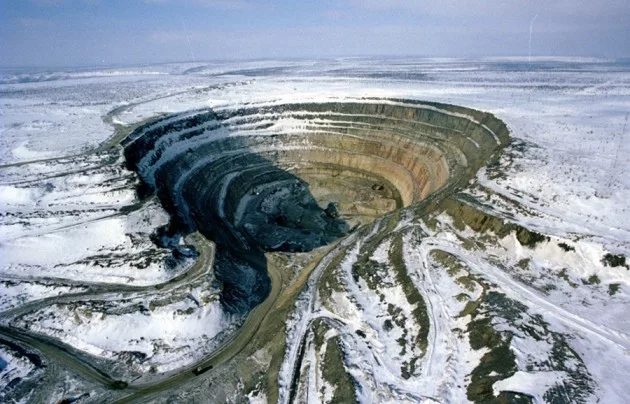And The Impact of International Politics
International politics and sanctions significantly influence the global gemstone market. As governments and alliances use sanctions to influence political outcomes, the gemstone industry faces new challenges in supply, compliance, and ethics. Understanding how sanctions and trade restrictions affect the gemstone market is essential for all stakeholders—from miners and dealers to consumers and policymakers.
How Sanctions Affect the Gemstone Market
Sanctions are government-imposed restrictions designed to pressure countries, companies, or individuals to change specific behaviours. In the gemstone sector, sanctions typically take the form of import or export bans, tariffs, and restrictions on third-country processing. These measures target nations such as Russia and Myanmar, aiming to cut off key revenue streams that support military regimes or fund conflicts.
Case Study: Russian Diamond Sanctions
Recent geopolitical tensions have led to sweeping sanctions on Russian diamonds. The UK, EU, G7, and US have imposed direct import bans and are introducing rules to prevent Russian diamonds from entering global markets through third countries. Russia, through its mining giant Alrosa, supplies about a third of the world’s diamonds. These sanctions have disrupted global supply chains, prompting major jewellers like Tiffany, Signet, and Dimexon to segregate their supply and ensure compliance[5]. However, the effectiveness of these bans is debated. While De Beers has increased production to offset reduced Russian supply, the World Federation of Diamond Bourses warns that the G7 ban could cause significant damage to the world diamond industry, especially as demand from India and China fluctuates.
Case Study: Myanmar and Jade Sanctions
Sanctions on Myanmar’s jade and gemstone trade target the military regime’s economic interests. The UK and US have sanctioned Myanmar Gems Enterprise, a state-owned company that oversees all gemstone activities, in an effort to deprive the junta of a significant funding source. However, these sanctions face limitations. China, the largest market for Burmese jadeite, continues to purchase jade, undermining the effectiveness of Western sanctions and rendering them largely symbolic. [6] International jewellers are encouraged to halt sourcing from Myanmar and prioritise human rights in their disengagement strategies.
Tariffs and Trade Barriers: The Trump Tariffs
Beyond sanctions, tariffs have also disrupted the gemstone market. Recent US tariffs on gemstone imports from countries like China, India, Thailand, and the EU have increased costs for businesses and consumers. Although some tariffs are currently paused, a baseline 10% tariff remains in effect for most countries, and higher rates could be reinstated. Dealers are preparing for further changes, while industry associations lobby for exemptions. These tariffs ripple through global supply chains, affecting both processing hubs and mining communities.
Market Disruption, Traceability, and Compliance
Sanctions and tariffs compel companies to reassess their sourcing and supply chain transparency. The need for traceability and documentation has increased, with firms segregating their supply chains to ensure compliance with new regulations [5]. These changes can lead to new trade routes, alliances, and market realignments as companies seek to maintain access to key markets.
Ongoing Challenges and Unintended Consequences
Despite their intended effects, sanctions and tariffs often have unintended consequences. Smuggling and grey markets may flourish as actors seek to bypass restrictions. Workers and communities in sanctioned regions can suffer economic hardship. Moreover, if major consumer markets like China do not participate in sanctions, their effectiveness is diminished, as seen in the ongoing trade in Burmese jade.
Summary and Key Takeaways
Sanctions and international politics are potent forces in the gemstone market, reshaping supply chains, compliance practices, and global trade dynamics. While sanctions can promote ethical trade and accountability, their success depends on international cooperation, robust enforcement, and ongoing vigilance against unintended consequences.
Frequently Asked Questions (FAQ)
Sanctions aim to cut off funding to regimes or groups engaged in conflict, human rights abuses, or anti-democratic actions by restricting access to lucrative gemstone markets.
Sanctions can disrupt supply chains, reduce availability, and sometimes lead to increased prices. However, alternative suppliers and new trade routes can offset shortages.
Sanctions can limit funding for oppressive regimes, but their effectiveness depends on broad international participation and enforcement. If major buyers ignore sanctions, their impact is reduced.
Ready to Start Your Gemstone Journey?
Don’t wait to discover the world of gemstones! Explore these essential reads right away.
Fascinated by this article and want to deepen your gemstone expertise? Dive into our comprehensive Gemstone Encyclopedia. Here, you’ll discover detailed information about hundreds of precious and semi-precious stones, including their properties and values.
For those interested in the rich cultural significance and fascinating stories behind these treasures, our History section offers captivating insights into how gemstones have shaped civilisations. Or perhaps you’d like to learn more about birthstones?
And if you’re considering gemstones as more than just beautiful adornments, visit our Precious Metal Investing guide. Here you will learn how these natural wonders can become valuable additions to your investment portfolio.






![Pigment analysis of Raphael's masterpiece[7][8] reveals the usual pigments of the renaissance period such as malachite mixed with orpiment in the green drapery on top of the painting, natural ultramarine mixed with lead white in the blue robe of Madonna and a mixture of lead-tin-yellow, vermilion and lead white in the yellow sleeve of St Barbara.](https://gemstonesinsider.com/wp-content/uploads/2025/09/Raphael-Madonna_Sistine_sm-560x420.jpg)



